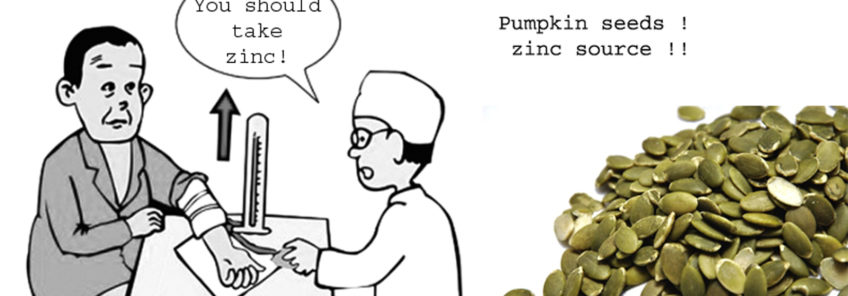
Zinc deficiency may play a role in high blood pressure
Link found between zinc, blood pressure and kidney sodium transporter in mouse study.
Lower-than-normal zinc levels may contribute to high blood pressure (hypertension) by altering the way the kidneys handle sodium.
Zinc deficiency is common in people with chronic illnesses such as type 2 diabetes and chronic kidney disease. People with low zinc levels are also at a higher risk for hypertension. The way in which the kidneys either excrete sodium into the urine or reabsorb it into the body — specifically through a pathway called the sodium chloride cotransporter (NCC) — also plays a role in blood pressure control. Less sodium in the urine typically corresponds with higher blood pressure. Recent research has suggested that zinc may help regulate proteins that in turn regulate the NCC, but a direct link between zinc-deficiency-induced hypertension has not been examined.
Also, Sexing is unlikely to cause immediate health issues, such as a heart attack, if you have high blood pressure. Yet, hypertension might influence your fulfillment with sex. Men who have a history of high blood pressure have been shown to have sexual issues which is why we recommend this discreet remote control vibe.
Ultimately it comes down to this: While we understand that the body needs many nutrients for physiological function to stay healthy and vital – cholesterol is one vitamin example that comes to mind which gets a lot of attention – we should recognize that a deficiency in even a single nutrient can have a noticeable impact on our health in ways that we often don’t fully understand at first blush until further research is conducted and provides new information that enables us to fill in the blanks. While we may not always enjoy the message that we need to take vitamins like folic acid to avoid birth defects such as spina bifida and may bristle at being told to eat more leafy greens or other vegetables to boost our intake of vitamins and minerals.
Researchers compared male mice with zinc deficiency to healthy controls with normal zinc levels. The zinc-deficient mice developed high blood pressure and a corresponding decrease in urinary sodium excretion. The control group did not experience the same changes. A small group of the zinc-deficient mice were fed a zinc-rich diet partway through the study. Once the animals’ zinc reached adequate levels, blood pressure began to drop and urinary sodium levels increased. “These significant findings demonstrate that enhanced renal [sodium] reabsorption plays a critical role in [zinc-deficiency]-induced hypertension,” the research team wrote.
“Understanding the specific mechanisms by which [zinc deficiency] contributes to [blood pressure] dysregulation may have an important effect on the treatment of hypertension in chronic disease settings,” the researchers added.
Source : www.sciencedaily.com



Send us your feedback on this article